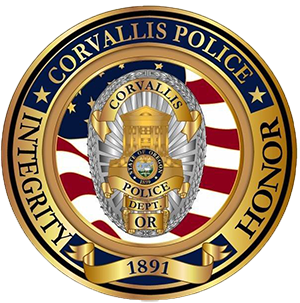Special Response Fee Notice and Chronic Nuisance Property
The Corvallis Police Department's Community Livability Unit works to keep neighborhoods safe and secure, particularly in areas near the Oregon State University campus. CPD monitors calls for service throughout the City and occasionally issues a Special Response Fee Notice to discourage further criminal behavior at a particular property. Repeated infractions can lead to the property being labeled a Chronic Nuisance Property. Both of these designations are described in detail below.
Special Response Fee Notice (SRN)
A SRN is a written notice for a police response when a police officer determines that one or more persons are engaged in an activity or conduct which violates the Corvallis Municipal Code or the Criminal Code of Oregon. The notice is given to the tenant or occupant of the residence at the time of the incident and notifies involved parties that the activity or conduct must cease.
This notice begins a 30-day window in which the occupants are not to engage in the behavior again. The first response notice may be given in conjunction with a verbal warning, citation, or physical custody.
A second police response within the 30-day window arising out of the activity or conduct will result in a citation, physical arrest, and/or civil fines. A Special Response Fee will be charged to each person deemed liable, and separate fees will be charged for each subsequent police response. The Special Response Fee is defined as the total cost incurred by the City in connection with such response, including but not limited to, police officers, equipment, dispatch, supervisor and administrative time.
After the 30-day window has passed from the first response, the window restarts with an additional response.
SRN Follow-Up Program: The CPD Community Livability Unit implemented the SRN Follow-Up Program in 2015 in an attempt to reduce repeat SRN offenders and improve livability. All SRNs are tracked by the Community Livability Unit. For the first SRN issued during each academic year to a specific address, a follow-up letter is sent to the occupants. For the second and any subsequent SRNs issued during the academic year, the Community Livability Unit responds to the address to discuss the events that have been occurring and how they can be resolved, and to educate residents on the laws and expectations of the community.
Chronic Nuisance Property (CNP)
A Chronic Nuisance Property is defined as a property upon which the owner permits:
- Three separate incidents that violate certain City ordinances or State laws within a 30-day period OR
- Five separate incidents that violate certain City ordinances or State laws within a 90-day period AND
- At least one of the incidents resulted in a citation or arrest.
The property owner and occupant then have 15 days to contact the Police Chief about why the property should not be considered a chronic nuisance property. They must also indicate what actions will be taken to address the allegations or indicate good cause why the owner cannot do so. If the owner fails to correct the problem within a reasonable period, the matter will be referred to a Hearings Officer who will work with the property owner to abate the nuisance.
Failure of the property owner to work with the Hearings Officer to correct the problems could result in a civil penalty of $250 for every day the property owner fails to take action and a penalty of $500 per incident for any subsequent incident occurring on the property within six months of the declaration of a nuisance property. Should the property owner fail to stop the nuisance activity, the Hearings Officer may also close and secure the property against use and occupancy for a period of not less than 10 days or more than six months.
Read more about the Chronic Nuisance Property designation in the Corvallis Municipal Code.
SRN or CNP?
An SRN represents civil penalties for the tenant or occupant of property and is a physical notice served at the time of the offense. A CNP represents civil penalties for the property owner and is mailed to the owner. Essentially, if a property receives too many SRNs, then the property can receive a CNP designation.

